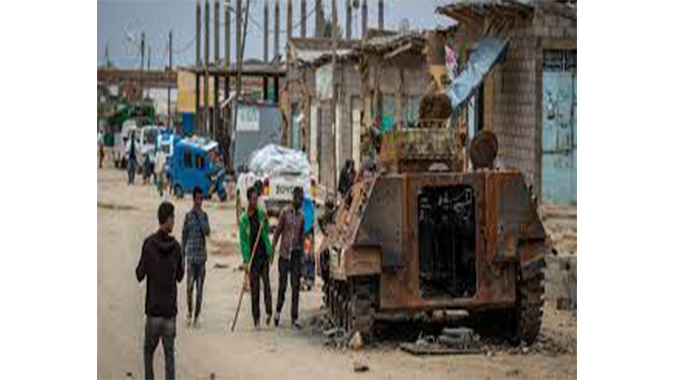Tigray rebels vow to drive out ‘enemies’ despite ceasefire

Leaders in Ethiopia’s war-hit Tigray pledged to drive out “enemies” from the region suggesting fighting will continue despite a federal government ceasefire declaration.
Tigrayan forces were conducting “mop-up” operations on Tuesday against Ethiopian government forces retreating from the regional capital Mekelle and the city was “100 percent” back under their control.
Getachew Reda, spokesman for the Tigray People’s Liberation Front (TPLF), said, “Our forces are still in hot pursuit to the south, east.”
“Our primary focus is to degrade enemy fighting capabilities … So if going to Amhara is what it takes, we will do it, if going to Eritrea is what it takes, we’ll do it,” Reda told Reuters by satellite phone.
The swift turn in the nearly eight-month war has left people scrambling to understand what exactly is going on in the region of six million people as communications links are largely down.
Eritrean forces — who fought alongside Ethiopia’s troops — are no longer visible in several Tigray areas, witnesses said. Eritrean soldiers — accused by witnesses of some of the war’s worst atrocities — left the towns of Shire, Axum and Adwa but it was not immediately clear whether they had left other communities, where they were going, or whether the retreat was temporary.
The retreat follows days of territorial gains by the Tigrayan forces battling Ethiopia’s government and its allies.
Tigray fighters were reportedly moving into Shire on Tuesday, their latest gain after some of the most intense fighting of the war. They were now in control of much of the region after a major counter-offensive with mass popular support, International Crisis Group analyst William Davison said in a statement.
Prime Minister Abiy Ahmed sent federal troops into Tigray last November to remove the TPLF government. He said the move came in response to TPLF attacks on federal army camps and promised victory would be swift.
But almost eight months on, the operation suffered a serious blow when rebel troops entered Mekelle on Monday, prompting celebrations in the streets as federal soldiers and members of an Abiy-appointed interim regional government fled.
Abiy’s government then announced on Monday night it was declaring a “unilateral ceasefire” — though there was no immediate response from the TPLF.
“The government and army of Tigray will carry out all the tasks necessary to ensure the survival and security of our people,” a TPLF statement said. “The government of Tigray calls upon our people and army of Tigray to intensify their struggle until our enemies completely leave Tigray.”
Al Jazeera’s Hiba Morgan, reporting from Khartoum in neighbouring Sudan, said the federal government’s announcement of a ceasefire is an admission that the Ethiopian national defence forces are not in the same position as they were only a week ago.
“Let’s not forget that Prime Minister Abiy Ahmed — on the 28th of November, just about three weeks after the offensive on the Tigray region — he announced that the war was largely over, that there is stability and the [new] government,” Morgan said.
“He did not announce a ceasefire back then. The Tigray Liberation Movement said they are going to continue fighting even if it is a guerrilla war, which is what apparently unfolded a few months after Abiy’s announcement.”
Though the Tigray defence forces did not hold any big cities and towns for months, its leaders have repeatedly boasted that they were regrouping in remote rural areas.
Last week, they launched a major offensive that coincided with Ethiopia’s highly anticipated national elections, which unfolded in much of the country though not in Tigray.
The results of the polls have yet to be announced, but they are widely expected to deliver Abiy a formal mandate. The brutal war in Tigray has been marked by massacres, widespread sexual violence and other abuses. The United Nations has also warned the conflict has pushed hundreds of thousands of people to the brink of famine.
In announcing its ceasefire, the federal government said it would last until the end of the current “farming season” and was intended to facilitate agricultural production and aid distribution while allowing rebel fighters “to return to a peaceful road”.
UN Secretary-General Antonio Guterres said on Monday he had spoken with Abiy, winner of the 2019 Nobel Peace Prize, and was “hopeful that an effective cessation of hostilities will take place”.
He called recent events in Tigray “extremely worrisome” saying they “demonstrate, once again, that there is no military solution to the crisis”.
Britain, the United States, and Ireland have called for an emergency UN Security Council public meeting, which could happen on Friday, diplomatic sources said.
The Security Council has failed to hold a public session on Tigray since the war erupted, with many African countries, China, Russia and other nations deeming the crisis an internal Ethiopian affair. — Al Jazeera and news agencies









Comments